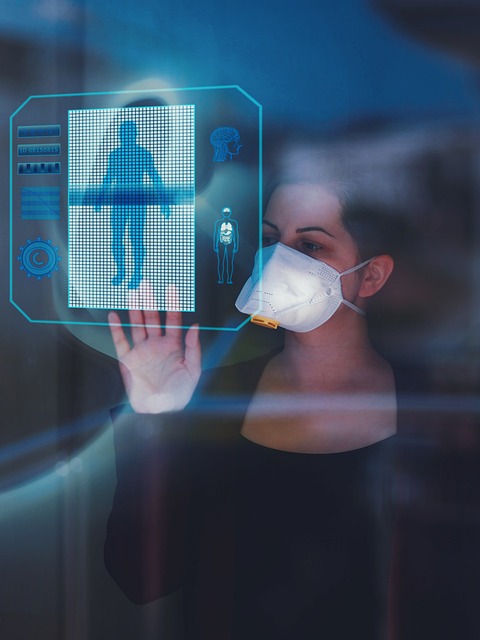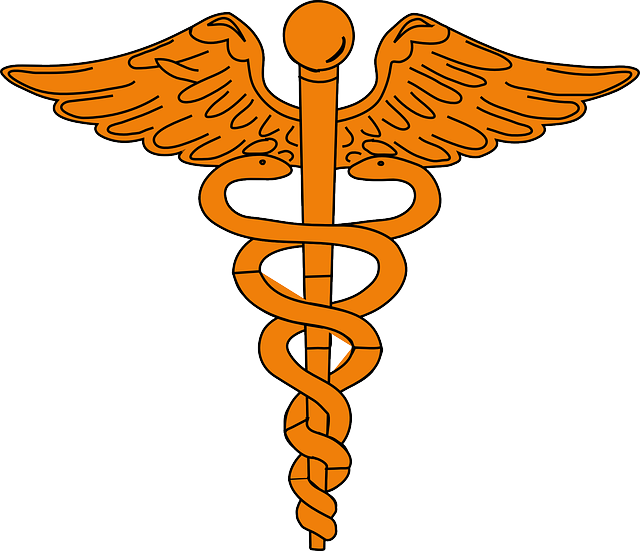Navigating Medical Record Translation UK: Ensuring Accuracy and Legal Compliance for Cross-Border Healthcare
In the UK, precise and reliable medical record translation services are indispensable for maintaining patient safety and ensuring quality healthcare. With a diverse population and an increasing number of international patients, these specialized tra…….

In the UK, precise and reliable medical record translation services are indispensable for maintaining patient safety and ensuring quality healthcare. With a diverse population and an increasing number of international patients, these specialized translation services enable healthcare providers to overcome language barriers effectively. The process involves certified translators with expertise in both medical terminology and the intricacies of the UK's legal and cultural contexts. These professionals conduct a thorough analysis of medical documents, employing a peer-review mechanism to ensure clinical accuracy and readability, thus preventing miscommunication or errors that could arise from language differences. This rigorous translation process is critical for upholding patient confidentiality, maintaining the integrity of patient records, and facilitating informed decision-making by both patients and practitioners. The role of Medical Record Translation UK in the NHS's healthcare system underscores its significance, particularly in instances where it has been successfully implemented to support complex health issues across various linguistic backgrounds, ultimately contributing to the provision of equitable healthcare for all citizens.
Navigating the complexities of healthcare, particularly with patients from diverse linguistic backgrounds, is a critical aspect of modern medical practice. In the UK, where healthcare services are integral to public welfare, the translation of foreign medical documents into English becomes paramount. This article delves into the nuanced field of certified medical record translation, shedding light on its necessity and the role it plays in cross-border healthcare. We will explore the intricacies of legal requirements for such translations, the importance of accuracy and cultural sensitivity, and how to identify a reliable service provider. With a focus on the UK’s standards, we examine key considerations for translating complex medical terminology and ensuring compliance. Additionally, we present case studies highlighting the significant impact of expertly translated medical records on patient care in the UK. Through this exploration, readers will gain a deeper understanding of the multifaceted nature of Medical Record Translation UK and its indispensable role in the healthcare sector.
- Understanding the Necessity of Certified Medical Record Translation in the UK
- The Role of Medical Document Translation in Cross-Border Healthcare
- Navigating the Legal Requirements for Certified Translations of Medical Records in the UK
- The Importance of Accuracy and Cultural Sensitivity in Medical Translations
- Identifying a Reliable Translation Service Provider for Medical Documents
- The Process of Obtaining Certified Translations of Foreign Medical Records
- Key Considerations for Translating Complex Medical Terminology
- Ensuring Compliance with UK Medical Documentation Standards
- Overcoming Language Barriers in Healthcare Settings with Professional Translation Services
- Case Studies: Successful Medical Record Translation and Its Impact on Patient Care in the UK
Understanding the Necessity of Certified Medical Record Translation in the UK

In the UK’s multicultural society, where patients from diverse linguistic backgrounds seek medical care, the necessity of certified medical record translation is paramount. The healthcare sector operates under stringent regulations, and patient confidentiality is a cornerstone of ethical practice. Certified translations ensure that foreign medical documents are accurately interpreted, maintaining both patient privacy and the integrity of their medical history. These translations are critical for healthcare professionals to assess patient records with precision, facilitating informed decision-making and treatment plans tailored to individual patient needs. The UK’s National Health Service (NHS) often encounters patients who require documentation from abroad to be understood in English, or vice versa. This necessitates the involvement of professional translators who hold a recognised qualification or certification, such as the Institute of Translation and Interpreters (ITI) or the Chartered Institute of Linguists (CIOL). Their expertise guarantees that medical terminology is conveyed correctly, avoiding misunderstandings that could compromise patient safety. In scenarios where medical records are not translated with fidelity, there is a risk of misdiagnosis, incorrect medication, and potential adverse outcomes for patients. Thus, the role of certified medical record translation in the UK healthcare system is integral, ensuring continuity of care and safeguarding patient well-being across linguistic barriers.
The Role of Medical Document Translation in Cross-Border Healthcare

The interconnected nature of global healthcare has necessitated a robust framework for medical document translation, particularly within the context of cross-border care. Medical Record Translation UK plays a pivotal role in this domain, bridging language barriers and enabling healthcare providers to offer services that cater to a diverse patient population. Accurate translations of medical records are not just about conveying information; they are critical for maintaining patient safety, ensuring compliance with legal standards, and facilitating effective treatment plans. The translation process must adhere to strict medical terminology standards and be performed by professionals who are not only linguistically proficient but also well-versed in the nuances of medical language. This is essential to avoid misinterpretation or errors that could compromise patient care. In the UK, where healthcare services are accessible to a multilingual demographic, the demand for certified translations of foreign medical documents is paramount. Medical Record Translation UK services must comply with regulations such as the General Data Protection Regulation (GDPR) and the NHS Constitution, guaranteeing the confidentiality and integrity of patient information across all linguistic translations. This not only supports healthcare providers in delivering informed and compassionate care but also upholds the ethical principles inherent to the medical profession. As cross-border healthcare continues to expand, the role of specialized medical document translation services will only grow in importance, ensuring that patient care remains at the forefront of global health initiatives.
Navigating the Legal Requirements for Certified Translations of Medical Records in the UK

Within the United Kingdom, the translation of medical records is a process that must adhere to strict legal requirements to ensure accuracy and compliance with data protection laws. Medical Record Translation UK involves a specialized category of translators who are not only proficient in the source and target languages but also well-versed in the intricacies of medical terminology and healthcare regulations. These translators must hold Certified Translator status, as accredited by the relevant authorities such as the Institute of Translation and Interpreting (ITI) or the Chartered Institute of Linguists (CIOL). This certification guarantees that the translated documents meet the necessary standards for use within healthcare settings.
The legal landscape for medical record translation in the UK is governed by the General Data Protection Regulation (GDPR), which dictates how personal data should be handled, and the Confidentiality of Health Information Regulations 2002, which provide additional protections for patient confidentiality. Translators must navigate these regulations to ensure that all medical records are translated with the utmost privacy and security. Moreover, each translation must come with a declaration or statement of accuracy, verifying that the content has been faithfully rendered into the target language and is a true reflection of the original document. This declaration often includes the translator’s signature and seal, further underscoring the authenticity and legal acceptance of the translated medical records in the UK healthcare system.
The Importance of Accuracy and Cultural Sensitivity in Medical Translations

When healthcare providers require medical records from patients with histories abroad, the accuracy and cultural sensitivity in translation become paramount. The UK’s National Health Service (NHS) often encounters such situations where patients bring foreign medical documents for continuity of care or to validate previous treatments. In these instances, certified translations of medical records by experts proficient in both languages and familiar with the healthcare context are essential. These professionals ensure that not only is the terminology medically precise but also that cultural nuances are accurately conveyed. This is critical because medical mistranslations can lead to incorrect diagnoses or treatment plans, potentially compromising patient safety. Therefore, when undertaking Medical Record Translation UK for healthcare use, translators must go beyond mere language transfer; they must understand the source culture’s perspective on health and medicine to interpret the context accurately. This not only supports better clinical decision-making but also fosters a more comprehensive understanding of the patient’s history, leading to improved patient outcomes and more effective treatment plans within the UK healthcare system.
Identifying a Reliable Translation Service Provider for Medical Documents

When the health of patients is at stake, the accuracy and reliability of medical document translations cannot be overstated. In the context of healthcare, where miscommunication can lead to grave consequences, selecting a trustworthy translation service provider for medical records in the UK is paramount. A reliable provider specialising in ‘Medical Record Translation UK’ should possess several qualifications and certifications that demonstrate their proficiency and credibility within this highly specialized field. They must have native-speaking translators with expertise not only in language nuances but also in medical terminology, ensuring precise and clear translation of complex medical information. Additionally, these providers should offer Certified Translations that are recognized by the UK’s relevant authorities, such as the Professional Standards Authority for Health and Social Care, which endorses the Registered Translator scheme. This endorsement guarantees that translators adhere to a set of professional standards and codes of practice that uphold the integrity of the translation process. When choosing a service provider, it is also crucial to consider their experience with the specific languages required, their understanding of UK healthcare regulations, and their commitment to maintaining patient confidentiality in compliance with the General Data Protection Regulation (GDPR). By prioritizing these factors, healthcare providers can ensure that medical records are accurately and sensitively translated, facilitating high-quality care for patients with foreign medical documents.
The Process of Obtaining Certified Translations of Foreign Medical Records

When healthcare professionals and institutions in the UK require medical records translated from foreign languages, they must obtain certified translations to ensure accuracy and compliance with legal standards. The process of certified translation involves a series of steps designed to guarantee that the translated content is a true and exact representation of the original document. Firstly, the translator must be a native speaker of both the source and target languages, and hold a professional certification from a recognized authority such as the Institute of Translation and Interpreting (ITI) or the Chartered Institute of Linguists (CIOL) in the UK. This certification guarantees that the translator possesses the linguistic and cultural competencies necessary to accurately convey complex medical terminology.
Upon commencement of the translation, the translator must carefully analyze the original document to understand its context, nuances, and terminologies specific to the medical field. The translation is then carried out, with the translator paying meticulous attention to detail, ensuring that medical record translation UK adheres to both the source language’s and the target language’s regulatory standards for healthcare documentation. After completion, the translated document undergoes a review process by a second qualified translator to verify its accuracy. This peer-reviewed step is crucial for maintaining the integrity of the information and for legal verification purposes. Once the translation has been validated, the translator affixes a signed certificate of accuracy and authenticity, which attests to the translation’s exactness and the qualifications of the translator. This certified translation can then be used within the UK healthcare system with the confidence that it meets both the linguistic and regulatory requirements necessary for patient care and decision-making.
Key Considerations for Translating Complex Medical Terminology

When translating complex medical terminology for healthcare use, precision and accuracy are paramount to ensure patient safety and compliance with legal standards. Medical record translation in the UK must adhere to strict guidelines set forth by the National Health Service (NHS) and professional bodies such as the Institute of Translation and Interpreting (ITI). Certified translators specializing in medical language must be proficient not only in the source and target languages but also in the nuances of medical terminology. This involves a deep understanding of medical practices, terminologies, and contexts to maintain the integrity of the information across different languages. The translation process must account for variations in medical terms that exist between countries, as well as the cultural sensitivities and legal requirements unique to the UK healthcare system. A robust translation workflow should include a review by a second translator with expertise in medical documentation to validate the translations’ clinical accuracy and readability. This collaborative approach minimizes the risk of miscommunication and misdiagnosis, which could arise from mistranslated medical records. By leveraging expert medical record translation services in the UK, healthcare providers can confidently rely on accurate translations that support informed decision-making and quality patient care.
Ensuring Compliance with UK Medical Documentation Standards

When healthcare providers in the UK require medical records from foreign patients, the translation of such documents becomes a critical task. It is imperative that these translations adhere to the stringent standards set forth by the UK’s Medical Record Translation UK regulations. These standards are established to ensure the accuracy and reliability of the translated content, which directly impacts patient care and safety. The translators must be not only proficient in both languages but also knowledgeable about medical terminology to bridge the communication gap effectively. Certified translations serve as a legal requirement, affirming that the translation meets the Medical Documentation Translation UK norms and is a true representation of the original document. This certification is vital for healthcare facilities to comply with data protection laws, such as the General Data Protection Regulation (GDPR), and to maintain the integrity of patient records within the healthcare system. Moreover, the use of professional translation services that specialize in Medical Record Translation UK ensures that the nuances and complexities inherent in medical documentation are accurately conveyed, facilitating informed decision-making by healthcare professionals and supporting the delivery of high-quality patient care.
Overcoming Language Barriers in Healthcare Settings with Professional Translation Services

In healthcare settings, effective communication is paramount for patient safety and quality care. With an increasingly diverse population and a growing need for international patients within the UK, medical record translation UK services have become invaluable tools in overcoming language barriers. Professional translation services specializing in medical document translation ensure that healthcare providers can access accurate, clear, and culturally relevant information. This is crucial for maintaining continuity of care and facilitating informed decision-making by both patients and practitioners. Certified translations provide the assurance that the content adheres to the necessary legal and professional standards required in the medical field, thereby upholding patient confidentiality and trust. By leveraging expert linguists with specialized knowledge in medicine, these translation services bridge the gap between healthcare professionals and non-English speaking patients, fostering an inclusive environment where all individuals can receive the care they need without language being a hindrance. The precision of medical record translation UK services not only enhances patient outcomes but also supports healthcare organizations in complying with legal obligations and ethical standards, ensuring that every patient’s voice is heard and understood.
Case Studies: Successful Medical Record Translation and Its Impact on Patient Care in the UK

In the UK’s National Health Service (NHS), the provision of accurate and timely medical record translation is pivotal for delivering effective patient care, especially in a multicultural society where patients often hail from diverse linguistic backgrounds. A prime example of this is the case of a London hospital that successfully implemented a certified translation service for foreign medical documents. This initiative enabled healthcare providers to access critical patient information without language barriers, leading to better communication and improved health outcomes. The translations were carried out by professionals who held the necessary certifications, ensuring the accuracy and legality of the translated content. One notable case involved a patient from Poland with a complex medical history. Due to the translation service, doctors were able to comprehend her past treatments, preventing unnecessary procedures and expediting her treatment plan—a clear demonstration of how medical record translation can positively impact patient care.
Another case study highlights the importance of this service in a rural GP practice in Scotland. The practice had a significant number of patients who spoke Urdu, Punjabi, or Mirpuri. By partnering with a professional translation agency, the practice was able to offer translated medical records to their patients, which facilitated more effective consultations and follow-up care. This not only enhanced patient satisfaction but also ensured that the nuances of cultural differences in health attitudes were respected, further illustrating the multifaceted benefits of medical record translation in the UK’s healthcare system. These instances underscore the necessity for healthcare providers to adopt such services, ensuring that all patients receive care that is both culturally and linguistically appropriate, thereby elevating the standard of patient care across the UK.
In the UK, where healthcare is a cornerstone of society, the integrity of medical record translation is paramount. The article has delved into the multifaceted nature of certified medical document translation, highlighting its critical role in cross-border healthcare and the UK’s stringent legal requirements for such translations. It emphasizes the necessity for accuracy and cultural sensitivity to ensure that patients receive the best possible care without language being a barrier. The process of obtaining certified translations of foreign medical records is outlined, along with key considerations for handling complex medical terminology. Ensuring compliance with UK medical documentation standards is essential for maintaining patient safety and trust. By choosing a reliable translation service provider, healthcare providers can effectively overcome language barriers, facilitating better communication and more effective care. The case studies presented underscore the positive impact of precise medical record translations within the UK’s healthcare system. In light of these insights, it is clear that professional translation services play an indispensable role in modern healthcare, bridging linguistic divides to uphold patient well-being and support informed decision-making by medical professionals.






